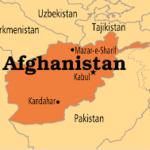Premium Times reported on October 22, 2018 that Razak Atunwa, the Kwara State PDP govership candidate in next year’s election, not only failed to participate in the mandatory National Youth Service Corps scheme, he also forged a discharge certificate to conceal this fact. The forged NYSC certificate, according to the Premium Times, had with it “a notarised affidavit sworn at the Kwara State High Court in Ilorin on September 10.” That’s three offenses in one: intentional evasion of national service, forgery, and perjury.
This is eerily reminiscent of former Finance Minister Kemi Adeosun’s NYSC dodging and forgery. But Atunwa’s is worse than Adeosun’s for at least two reasons. First, although Atunwa got his bachelor’s and master’s degrees in the UK, he was born in Nigeria and therefore had no room for plausible deniability for avoiding the national youth service. He also has no reason not to know that it’s illegal to take any public or private sector employment in Nigeria without first presenting evidence of participation in the NYSC scheme, especially because he is a lawyer.
Second, Premium Times’ report showed that Atunwa forged the NYSC discharge certificate after the outrage that Kemi Adeosun’s forgery excited in the nation. That’s unnervingly brazen. But, more than anything, it bespeaks the man’s questionable moral character and propensity for audacious fraud.
It’s troubling that Atunwa was at various times a commissioner in Kwara State and was even a speaker of the Kwara State House of Assembly. He is currently a member of the House of Representatives and chair of its Committee on Justice. The act that established the NYSC states that, “[…] it is illegal to hire a person who graduated but failed to make himself or herself available to serve, or falsify any document to the effect that he or she has served or exempted from serving.”
Atunwa, like Adeosun, is evidently a malefactor who should not only serve jail time but should pay restitution for all the time he was illegally employed in Nigeria since his return from the UK. How could PDP in Kwara pass over astute, virile, not to mention “loyal,” politicians like former APC spokesperson Bolaji Abdullahi and House of Reps member Zakari Mohammed for a common crook like Atunwa who has intentionally contravened the law he said he studied and practiced?
In order to get around his forgery, it is rumored that Atunwa plans to present only his school certificate to INEC and to disclaim possession of a bachelor’s degree since a secondary school certificate is the minimum qualification required to be governor. But how will he erase previous claims to being a lawyer, to having graduated from the University of East London for his law degree and from the University of London for his master’s degree? How would he explain away submitting a forged NYSC discharge certificate to the PDP under oath?
Sadly, Atunwa may get away with this because others before him have. Kemi Adeosun was helped by the government to escape to London and evade justice. Minister of Communication Adebayo Shittu, who has admitted to not participating in the NYSC scheme on the basis of which the APC disqualified him from running for governor of his state, is still a minister. Okoi Obono-Obla, Special Assistant to the President on Prosecutions and Head of Special Investigation Panel for Recovery of Public Property, who fudged a school certificate—which, in all probability, belonged to his dead relative—to gain admission to study law at the University of Jos still has his job in spite of the public disclosure of this fact.
The fact of being in an opposition party might cause our overtly partisan law enforcement agents to hound Atunwa, as in being done to Senator Adeleke, but as someone from Kwara State, I am alarmed that a contemptibly unabashed moral cripple like Atunwa is in danger of becoming the governor of my state.
Senator Shehu Sani’s Comeuppance
Senator Shehu Sani captured the imagination of Nigerians with his penetratingly coruscating wit against the incompetence, duplicity, and inefficiency of the APC-led federal government. We learned from Governor Nasir El-Rufai’s leaked memo to President Buhari that the president was so anguished by Sani’s piercing rhetorical punches against him that he ordered that he be recalled. Although the presidency has denied this, the denial was weak and implausible.
But Shehu Sani suddenly transmogrified into a forceful defender of the same President Buhari that he viciously pilloried and satirized with his inimitable verbal darts. He also betrayed his colleagues with whom he stood up to Buhari’s tyranny because APC’s cantankerous and emotionally unstable chairman promised him an “automatic ticket.” Now, the APC Kaduna Central senatorial ticket for whose sake he betrayed both himself and his colleagues has slipped away from him irretrievably. He is now hoisting the flag of a practically dead PRP.
Sani wanted to simultaneously run with the hare and hunt with the hounds. That doesn’t always end well. Now he is, as the English would say, hoist with his own petard, that is, he’s been politically blown to shreds by his shameless duplicity and opportunism.
Misty-eyed Gratitude to Media Trust
Since my wife’s death in a car crash in June 2010, the management of Daily Trust, where she worked as Assistant Editor until her death, keeps her memory alive in our children and me in ways they probably don’t realize.
The company has a policy to give yearly financial assistance to the children of its deceased staff. For the last past seven years, every time I get an email from the company notifying me that money has been deposited into my account for my children’s education, I get misty-eyed. I know of no place of work where special funds are set aside to assist children of deceased staff members.
It is the symbolism of the gesture, more than the money itself, that gratifies, impresses, and touches me. Media Trust has shown itself to be a company that cherishes its workers both in life and in death. When I worked at the Trust, where I met my late wife, Zainab, I never ceased to be impressed by the management’s commitment to the welfare of its workers.
Apart from our regular salaries, which were light-years above the industry standard, we used to receive extra money every quarter from the excess profit the company made from advertising—in addition to being paid “13th month” salaries every December.
In 1998 when I started work with Trust, graduate salaries in Nigeria were N3,500 at the federal level and N2,500 in most states. In Trust, graduates were paid N11,000. When Obasanjo increased the federal minimum wage to N18,000, our salaries at Trust more than tripled— without any prompting from workers. And the quarterly extra cash from advert sales didn’t stop. Nor did the “13th month.”
I have chosen to share this here because I realize that it’s too easy to overlook or take for granted goodness and graciousness. As a culture, we also have a tendency to celebrate good deeds and good people only when they are no more.
My 10-year-old daughter and my 8-year-old son have no recollections of their mother, and my 14-year-old daughter’s memory of her is hazy, but every year I tell them their mother’s former place of work has sent money to them to help with their school, I sense the depth of joy they feel.
As my 14-year-old daughter said a few days ago, the yearly financial assistance from Media Trust indicates that their mother worked in a place that “valued her and respects her memory.” I am certain that this sentiment is shared by all living family members of deceased Media Trust staff. Thank you, Media Trust!

 Join Daily Trust WhatsApp Community For Quick Access To News and Happenings Around You.
Join Daily Trust WhatsApp Community For Quick Access To News and Happenings Around You.


